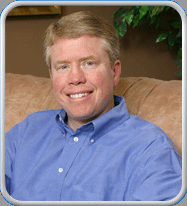Would you be willing to give your life to save another person? This is the question Wesley Autrey asked himself as he watched a young New York stranger fall between the subway tracks in front of an approaching train.
Harlem native Wesley Autrey, a 50-year-old construction worker and Navy veteran was waiting for a subway with his two young daughters. Nearby, a man collapsed, his body convulsing due to a seizure. Autrey and two women rushed to help as the man appeared to regain his composure. Cameron Hollopeter, 20, managed to get up, but then stumbled to the platform edge and fell to the tracks, between the two rails. The headlights of the No.1 train appeared. “I had to make a split decision,” Autrey said. So he made one, and leapt.
As the train approached, Mr. Autrey lay on Mr. Hollopeter, his heart pounding, pressing him down in a space roughly a foot deep. The train’s brakes screeched, but it could not stop in time. Five cars rolled overhead before the train stopped, the cars passing inches from his head, smudging his blue knit cap with grease. Mr. Autrey heard onlookers’ screams. “We’re O.K. down here,” he yelled, “but I’ve got two daughters up there. Let them know their father’s O.K.” He heard cries of wonder, and applause.
In the weeks following his heroic act, Autrey has been the focus of massive media attention. Along with multiple television appearances, he was even recognized by President Bush during his State of the Union address last week. Autrey was surprised by the attention drawn to his unselfish act. In a very humble demeanor he told the press, “I don’t feel like I did something spectacular; I just saw someone who needed help. I don't think I did anything heroic. I just saved a life. I don't call myself a hero because the real heroes are overseas dying for you and me.”
Ecclesiastes 4:9-10 reminds us that each of us is vulnerable to falling, “Two are better than one, because they have a good return for their work: If one falls down, his friend can help him up. But pity the man who falls and has no one to help him up!” Our fall may be a financial fall, a moral fall, a health fall or a marriage fall. Regardless of the fall, we need to have men around us who can help us get back on our feet.
Perhaps you don’t have someone out there watching your back. This is what Men’s Ministry is all about. The teaching, food and fellowship are great, but the ultimate goal is building meaningful relationships with other men. These relationships are sometimes awkward and difficult for men, but in the end they can make all the difference.
Shoulder to Shoulder,
Gregg
Friday, January 26, 2007
Wednesday, January 17, 2007
Do It Again Lord!
New York City businessman Jeremiah Lanphier and six other men knelt in prayer during their lunchtime. Lanphier was concerned about the lack of spiritual interest in his city and nation. The United States was in spiritual, political, and economic decline. Many people were disillusioned with spiritual things because of preachers who had repeatedly predicted the end of the world in the 1840's. Agitation over slavery was breeding political unrest, and civil war seemed near. He knew they needed revival and prayer was the key. He had rented a hall on Fulton Street and advertised for men to come and pray on their lunch breaks. He was discouraged when only six showed up, but was reminded that Christ promised to be present when only two or three gathered in His name. They agreed to meet again next week.
The third week of the prayer meetings, forty participated and they asked for daily meetings. Within six months 10,000 people were gathering daily for prayer in New York City alone. Other cities experienced a renewed interest in prayer, too. In Chicago, the Metropolitan Theater was filled every day with 2000 praying people. In Louisville, several thousand came to the Masonic Temple for prayer each morning. 2,000 assembled for daily prayer in Cleveland and St. Louis churches were filled for months at a time. In many places tents were set up for prayer.
In 1858 the New York Tribune devoted an entire issue to news of the revival. News of the revival traveled west by telegraph. Lay people, not church leaders, led the meetings. Prayer, rather than preaching, was the main focus. The meetings themselves were informal -- any person might pray, speak, lead in a song, or give a word of testimony, with a five minute limit placed on each speaker.
Thus the small prayer meeting of Jeremy Lanphier led to the Third Great Awakening. Many of the thousands who died in the Civil War came to faith in Christ during the Prayer Revival. This was the first revival beginning in America with a worldwide impact. The revival spread to Ireland, Scotland, Wales, England, Europe, South Africa, India, Australia, and the Pacific islands.
This week our church is preparing for a revival conference and I am asking our men to lead the way. Will you take some time to pray and fast over the next four days as we prepare for Sunday? Will you lead out and bring your family to each of the conference sessions? Let us ask God to do it again, and let it start with us.
Shoulder to Shoulder,
Gregg
The third week of the prayer meetings, forty participated and they asked for daily meetings. Within six months 10,000 people were gathering daily for prayer in New York City alone. Other cities experienced a renewed interest in prayer, too. In Chicago, the Metropolitan Theater was filled every day with 2000 praying people. In Louisville, several thousand came to the Masonic Temple for prayer each morning. 2,000 assembled for daily prayer in Cleveland and St. Louis churches were filled for months at a time. In many places tents were set up for prayer.
In 1858 the New York Tribune devoted an entire issue to news of the revival. News of the revival traveled west by telegraph. Lay people, not church leaders, led the meetings. Prayer, rather than preaching, was the main focus. The meetings themselves were informal -- any person might pray, speak, lead in a song, or give a word of testimony, with a five minute limit placed on each speaker.
Thus the small prayer meeting of Jeremy Lanphier led to the Third Great Awakening. Many of the thousands who died in the Civil War came to faith in Christ during the Prayer Revival. This was the first revival beginning in America with a worldwide impact. The revival spread to Ireland, Scotland, Wales, England, Europe, South Africa, India, Australia, and the Pacific islands.
This week our church is preparing for a revival conference and I am asking our men to lead the way. Will you take some time to pray and fast over the next four days as we prepare for Sunday? Will you lead out and bring your family to each of the conference sessions? Let us ask God to do it again, and let it start with us.
Shoulder to Shoulder,
Gregg
Subscribe to:
Comments (Atom)

